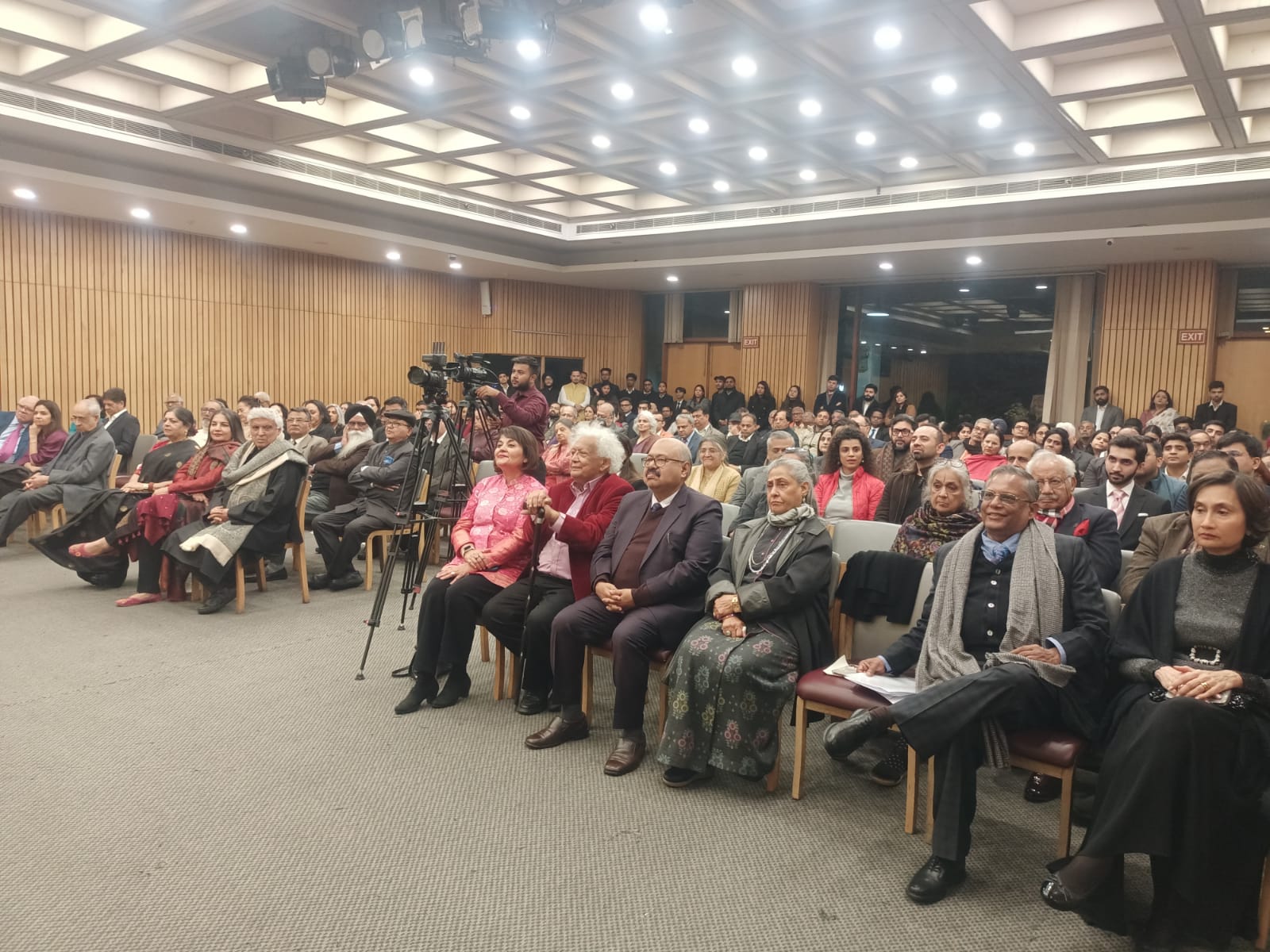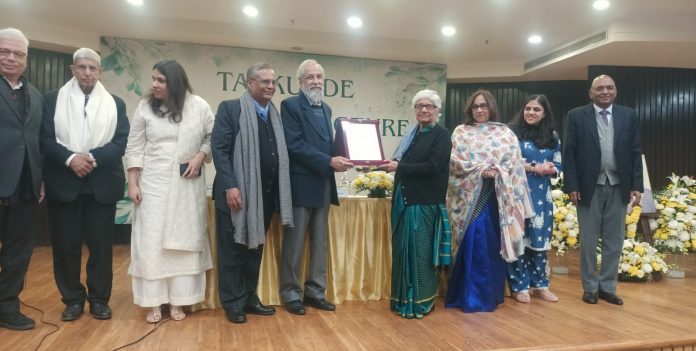New Delhi: Award-winning journalist and author Neerja Chowdhury cautioned against the potential repercussions of the ‘One Nation, One Election’ (ONOE) proposal, emphasising its divisive impact on India’s north-south political dynamics. Delivering the 15th Tarkunde Memorial Lecture, Chowdhury noted that the strongest opposition to the initiative has emerged from southern states.
Speaking on “The Electoral Process and the Idea of One Nation, One Election,” Chowdhury said, “In consultations conducted by the Law Commission in 2017, representatives from southern states expressed the sharpest objections. Tamil Nadu Chief Minister M.K. Stalin, for instance, voiced his opposition emphatically.”
Chowdhury highlighted the historical and cultural complexities that underpin India’s federal structure, warning that advancing ONOE could aggravate existing regional tensions.
 The lecture also paid homage to Justice Vitthal Mahadev Tarkunde, a stalwart of civil liberties in India. Chowdhury, who collaborated with Tarkunde in the 1970s through civil rights organisations, spoke of his enduring influence as Founding President of People’s Union for Civil Liberties (PUCL). Justice Madan Lokur, president of the Tarkunde Memorial Trust, lauded Tarkunde’s life work, quoting his prophetic warning about the potential erosion of democracy through communal divisions.
The lecture also paid homage to Justice Vitthal Mahadev Tarkunde, a stalwart of civil liberties in India. Chowdhury, who collaborated with Tarkunde in the 1970s through civil rights organisations, spoke of his enduring influence as Founding President of People’s Union for Civil Liberties (PUCL). Justice Madan Lokur, president of the Tarkunde Memorial Trust, lauded Tarkunde’s life work, quoting his prophetic warning about the potential erosion of democracy through communal divisions.
Chowdhury raised critical questions about the feasibility and implications of ONOE. She pointed out that synchronising Lok Sabha and state assembly elections, as proposed under the Constitution (129th) Amendment Bill and the Union Territories Laws (Amendment) Bill 2024, poses significant logistical and constitutional challenges.
“The first bill requires a constitutional amendment, while the second seeks to align polls in Delhi, Puducherry, and Jammu & Kashmir with general elections through a simple majority,” she explained. However, the synchronisation of local body elections within 100 days – a prerequisite for full alignment – has not yet been addressed, as it would require ratification by 50% of states.
Chowdhury also emphasised that many opposition parties, including the Congress, DMK, Trinamool Congress, and Samajwadi Party, have opposed the ONOE proposal. “They argue that it undermines the federal spirit of the Constitution, risks altering its basic structure, and tilts power toward a unitary form of government, potentially benefiting the BJP,” she said.
She questioned the Election Commission of India’s (ECI) preparedness to conduct simultaneous elections for the Lok Sabha, 28 state assemblies, and union territories. “If the ECI recently struggled to hold elections in four states simultaneously, how will it manage nationwide polls requiring multiple phases in some regions?” she asked.
Chowdhury concluded by advocating for a deeper, more inclusive debate on the ONOE initiative. “Frequent elections should not be viewed as a burden. If they strengthen democracy, enhance public participation, and increase government accountability, they are worth the effort,” she asserted.
Senior advocate Raju Ramachandran praised Tarkunde’s leadership during the Emergency, where he emerged as a symbol of hope through organisations like PUCL and Citizens for Democracy. Highlighting his investigative work during the 1984 riots and his advocacy for human rights in Punjab and Jammu & Kashmir, Ramachandran underscored Tarkunde’s lasting contributions to civil liberties in India.
Justice Lokur echoed these sentiments, calling Tarkunde a visionary who foresaw the dangers of communal politics undermining democracy, warning of a drift toward an “indigenous variety of fascism.”




